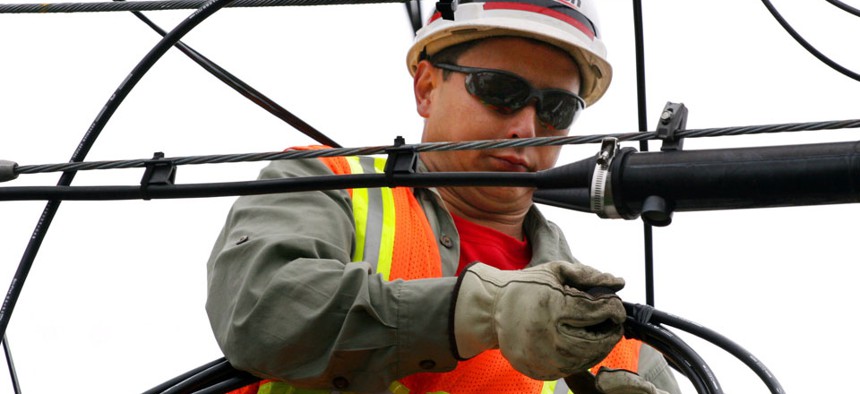States Would Sue to Kill City Internet Service

Mark Lennihan/AP File Photo
State legislatures threatened to take the FCC to court to protect restrictions on municipal broadband networks.
A group representing state legislatures is threatening to sue to protect restrictions on city-run Internet networks, claiming the projects often waste taxpayer money.
The National Conference of State Legislatures sent a letter Tuesday to the Federal Communications Commission, saying it would file a constitutional challenge against any federal action to preempt state laws limiting municipal broadband.
"Aside from the constitutional challenges, such an attempt disregards the countless hours of deliberation and votes cast by locally elected lawmakers across the country and supplants it with the impulses of a five-member appointed body in Washington, D.C.," the group wrote.
FCC Chairman Tom Wheeler has said he may strike down state laws that restrict the ability of cities to build their own Internet networks. Such laws stifle competition and often leave consumers with slower Internet access, Wheeler claims.
In a blog post last month, Wheeler argued that local governments "shouldn't be stopped by state laws promoted by cable and telephone companies that don't want that competition."
Telecom and cable companies have been lobbying for the state restrictions around the country, arguing that it's not fair for them to compete with government-owned Internet providers. The companies claim the city projects discourage private investment and are often expensive failures.
In the letter to the FCC, the state legislative group said it shares Wheeler's "aspiration that every American have access to broadband," but that it was reasonable for 21 states to enact laws to prevent wasteful projects.
The group urged Wheeler to "heed the principles of federalism" and cautioned him of "the numerous decisions by the United States Supreme Court with regard to the relationship between the state and its political subdivisions."
If the FCC tries to strike down a state law, it would likely point to Section 706 of the Telecommunications Act, which gives the agency the authority to promote the deployment of broadband. State laws that restrict municipal broadband could be in violation of that provision, according to the FCC.
House Republicans approved an amendment to an appropriations bill last week to bar the FCC from preempting state broadband laws. The provision, however, is unlikely to pass the Senate.






